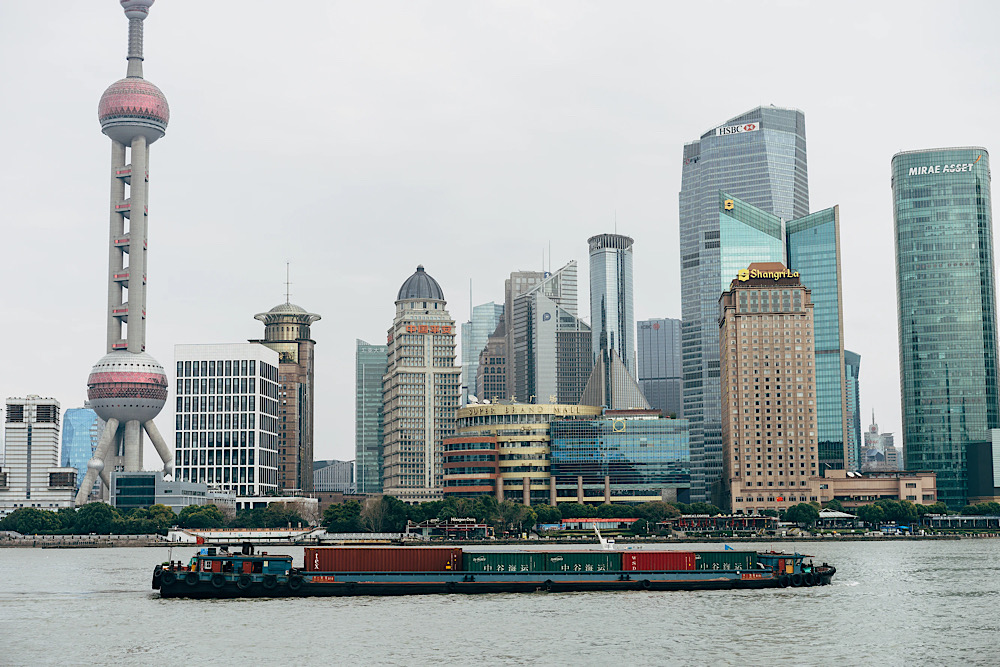Beijing: real estate crisis spreads to financial brokerage firms
China's bubble ready to burst, as shown by the China Evergrande Group filing for bankruptcy protection in New York. Construction giants and huge defaults. The woes of Zhongzhi, empire of financial intermediation. The authorities' vain search for solutions and fears of protests. Pboc cuts prime rate by 10 basis points.
Beijing (AsiaNews) - The bubbles of the huge debts in China are exploding. China Evergrande Group, the most heavily indebted real estate company filed for bankruptcy protection in a New York court last week. Meanwhile, the crisis of the shadow banking system triggered by the real estate industry is looming. The defaults have sparked protests by investors.
China’s one of the largest property developers Evergrande is obsessed with a huge amount of debt, as much as 300 billion US dollars (275.5 billion Euros). Evergrande has lost about 80 billion (73.5 billion Euros) US dollars in the past two years. Evergrande expects the move may protect its assets from creditors as the company is undergoing a restructuring plan and struggling to survive in the crisis.
Speculation arouses for the marital status of Evergrande’s chairman Xu Jiayin, as Ding Yumei is no longer listed as Xu’s spouse in the company’s 2022 annual report. Instead, the latest filing to Hong Kong Stock Exchange described Ding as a “third-party independent”. In late 2021, Ding as a person acting in concert, still described as Xu’s wife in the company’s report then, sold 1.2 billion shares of Evergrande. Analysts believe that Xu and Ding divorced as a technique to evade the debts and keep their assets.
Another property giant Country Garden in crisis will be removed from Hong Kong-based Hang Seng Index. The price of the shares dropped 77% from the top this year. Several bonds of Country Garden suspended trading in the market due to defaults. The company failed to pay two dollar bond coupons this month and flared fears. Analysts worry the troubles of the property giants can be contagious to the overall economy as the real estate industry accounts for almost one-third of China’s GDP.
In addition, the profit of the real estate developer Soho China dropped 93% in the first half of 2023, according to its semi-annual report. The report also disclosed that the company owns 1.9 billion yuan (239.66 million Euros) taxes which can cause defaults of the loans.
The crisis in the real estate industry is transferring to the shadow banking system. Exposed to the real estate sector, Zhongzhi Enterprise Group, one of China’s largest wealth managers, is facing a liquidity problem and sending shockwaves to the financial system. The firm operates about one trillion yuan (126.3 billion Euros) assets in the shadow banking system and is seeking a restructuring of its debts. The group raised funds from companies and the public by selling high-yielding investment portfolios via its trust and wealth management bodies with strong connections to banks and financial institutions.
As a shadow banking empire, many trust products of Zhongzhi were backed by Evergrande. Currently, Zhongzhi becomes unable to draw sufficient new investments to replace maturing portfolios and triggers defaults. Fearing the contagion, numerous anxious investors are questioning the listed companies about their exposure to the group.
The series of defaults in the real estate industry and the para-banking system are causing more protests in recent years. Many individuals protested that they lost their savings in various portfolios. Last summer, home buyers protested for unfinished buildings that they have paid for. Usually, police cracked down on the protests and authorities monitor the victims to prevent them from filing petitions and complaints to Beijing.
The same thing happened to the investors of Zhongzhi. As Zhongrong International Trust, a subsidiary of Zhongzhi, missed payments on dozens of portfolios, some anxious investors protested outside Zhongrong’s office in Beijing. Police came and persuaded the protesters to leave. Zhongzhi has hired KPMG to examine its financial status amid the worsening liquidity crunch. China’s banking regulator is also scrutinizing the risks of Zhongzhi and looking for ways to prevent the potential contagion.
Impacted by weak economic performance and the crisis in the real estate industry, international hedge funds are selling stocks in China, according to a report from Goldman Sachs. China’s stock regulatory authority is planning to reactivate the capital market in the context of a slack economy. China Securities Regulatory Commission announced measures such as lowering the trading commission and prolonging trading hours. However, observers say the policy does not eliminate the worries about the slowing economy.
It seems that Chinese authorities prefer to keep closed eyes on the dismaying economic data. China’s National Bureau of Statistics suspended disclosing the youth employment rate as the rate escalated to over 20%. Media have noticed the data blackout in China. Recently more data are concealed by Chinese authorities, including land sales, foreign currency reserves, bond trades, and deaths of Covid.
19/10/2021 18:02







.png)










